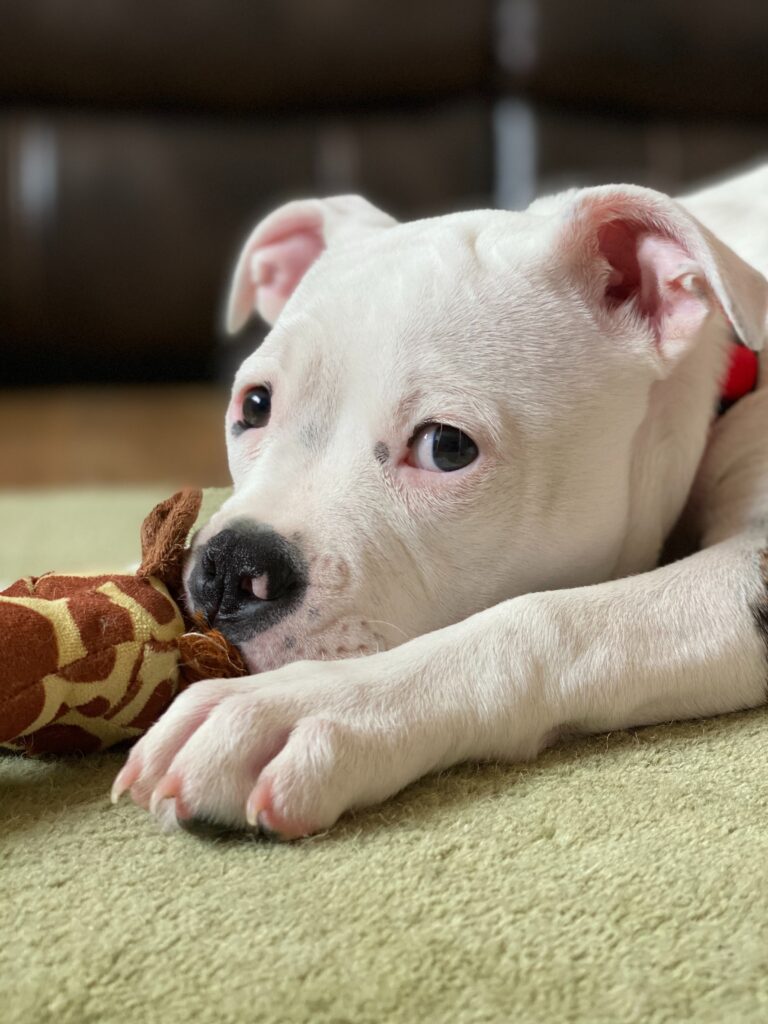CANINE WELFARE POLICY PROGRAM OVERVIEW
PROGRAM MISSION:
We drive innovation and change in canine welfare policy in support of our mission to create profound, lasting change for the benefit of dogs everywhere.
CANINE WELFARE POLICY PROGRAM.

Why our Canine Welfare Policy Program is important: Companion animal welfare policy is highly politicized in Colorado, requiring experienced navigation around the many sensitive issues arising in legislation and regulation. We have created productive relationships over the last many years with Colorado legislators and regulators, resulting in consistent participation in policy-making conversations. Our unique ability to bring fact-based discussions to what are inherently emotional debates over policy-making is supported by our Research & Education Program.
What we’ve done so far: With a fact-based mindset, we have developed relationships and credibility with Colorado’s most important policymakers.
In 2021:
- We testified in support of the Colorado Care Of Dogs And Cats In Pet Animal Facilities Act (HB 21-1160), which requires licensees to, among other things, provide timely veterinary care and address the behavioral needs of each dog and cat held in its custody.
- We argued against the Colorado Consumer Protection For Dog And Cat Purchasers Act (HB 21-1102, “The Act”) was originally introduced as it would fail to improve the lives of companion animals and negatively impact the livelihoods of many Coloradoans, by banning any new pet stores in Colorado. While The Act was subsequently passed after being amended to eliminate the ban on pet stores, we withheld our support as we believe the disclosure requirements mandated by The Act should apply to large-scale rescues (also known as retail rescues) as well as pet stores.
In 2022:
- We testified against a proposed Colorado Springs ordinance that would ban the sale of dogs and cats in pet stores in that city, requiring that these businesses only offer homeless dogs and cats for rescue. Our strong opposition to the ordinance is based on the observed experience of the State of California which imposed the same regulations doing more harm than good with numerous loopholes and costly enforcement.
- We participated in stakeholder meetings where we provided input on what, if any, regulatory changes needed to be made by PACFA to comply with HB 21-1160, passed in 2021. Stakeholders agreed that existing rules adequately address all areas of the new law except for the need for licensees to “address the behavioral needs of each dog and cat held in its custody to ensure that the dog or cat is not housed or kept in a manner that fosters stereotypic or self-mutilating behavior”. PACFA subsequently invited us to participate in developing new rules covering behavior and enrichment for dogs and cats while in the custody of a pet animal facility.
- We similarly participated in stakeholder meetings to address rule-making surrounding the importation of companion animals from other states as well as the movement of cats and dogs inside our state to address a significant increase in disease associated with these activities, a concern raised in the 2019 Sunset Review. At the conclusion of the stakeholder meetings, we were invited by PACFA to collaborate with a small team of subject matter experts to develop regulations around disease control and transmission, with a focus on importation from other states and the transfer of pet animals within the state.
In 2023:
- We completed our work assisting PACFA with the development of rules to comply with the requirements of HB 21-1160 with regard to addressing the behavioral and enrichment needs of dogs and cats in pet animal facilities.
- We also completed our work with the PACFA team on rule-making around disease control and transmission as it relates to the importation and movement of pet animals in our state.
- We testified in support of SB 24-045 Modifications to Sterilization Requirements for Cats & Dogs, which addresses what has been an oft-abused exemption to Colorado’s spay and neuter requirements codified in SB 19-158. This exemption was created by Colorado’s HB 08-1185, Spay & Neuter in Shelter Rescue Dogs & Cats, which allows unsterilized dogs and cats to be released by a shelter or rescue if a licensed veterinarian certifies the spay or neuter would jeopardize the health of the animal, exempting these animals from the sterilization requirement before adoption. The exemption was routinely abused by unethical rescues seeking to avoid the cost of the spay or neuter, putting the onus on adopters to have their animal sterilized at some future date, usually at their own expense.
Read our full analysis of the legislation.
- We participated in stakeholder meetings related to HB 24-1114 Pet Animal Facility Requirements Before Euthanasia, which we opposed. We worked with legislators on both sides of the aisle to educate them about our concerns and the ramifications of moving forward with the legislation. Ultimately, legislators agreed that the proposed legislation was problematic and voted against it.
Read our full analysis of the proposed legislation.
Our 2025 initiatives include:
- Exploring available options to address failures in our animal welfare system that leave dogs associated with a legal case in the care of a shelter for extended periods while the matter moves through the courts. We find it unacceptable that countless dogs spend years in shelters on “court hold” and we aim to develop a solution for Colorado. Read about one case here.
- Leading grassroots stakeholder meetings in preparation for the 2025 PACFA Sunset Review, the purpose of which is to review the effectiveness of and need for the agency. In 2025, we will be included in the stakeholder committee that will support the Colorado Department of Regulatory Agencies in its Sunset Review process.
What’s next: We will continue to stay abreast of proposed legislation and regulations impacting companion animals in Colorado, and elsewhere. We will deepen and expand our relationships with policymakers and influencers and continue to be involved in stakeholder meetings and regulatory development programs.
